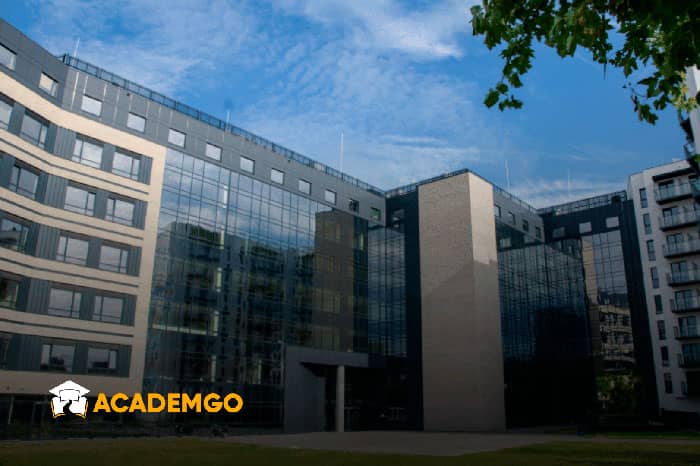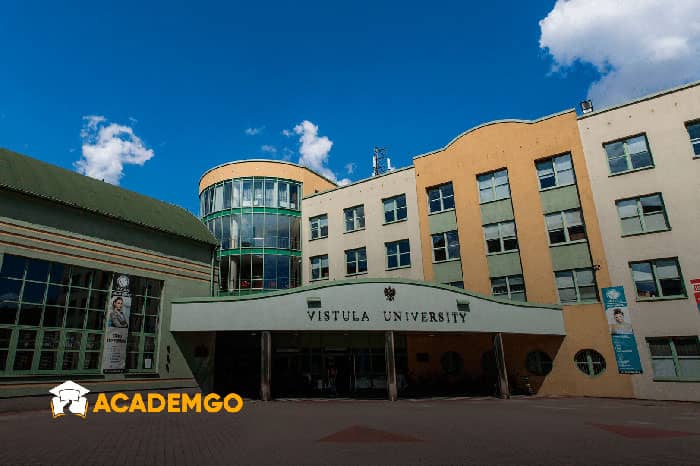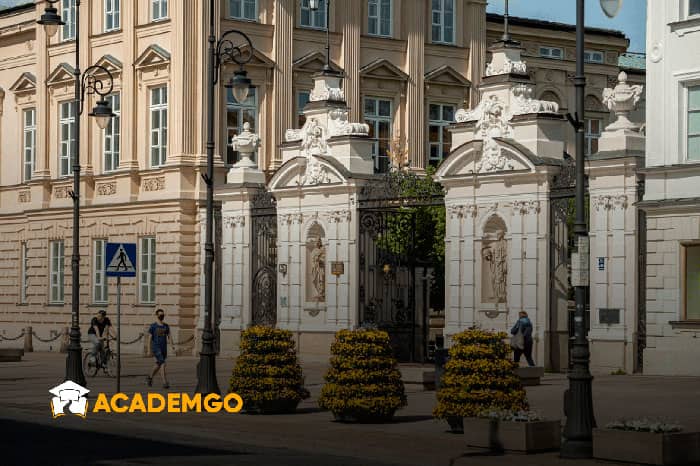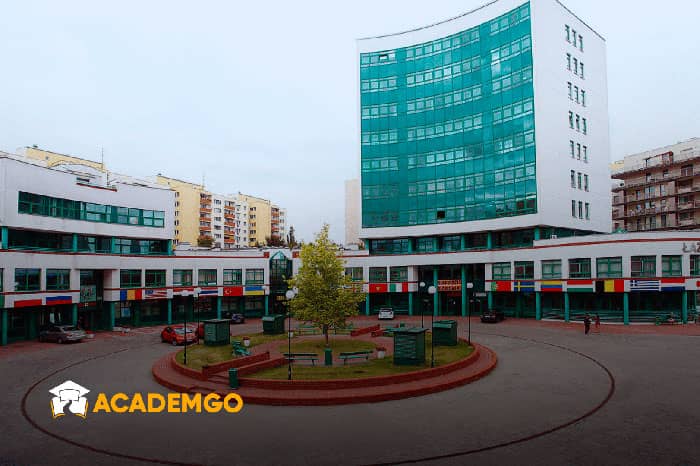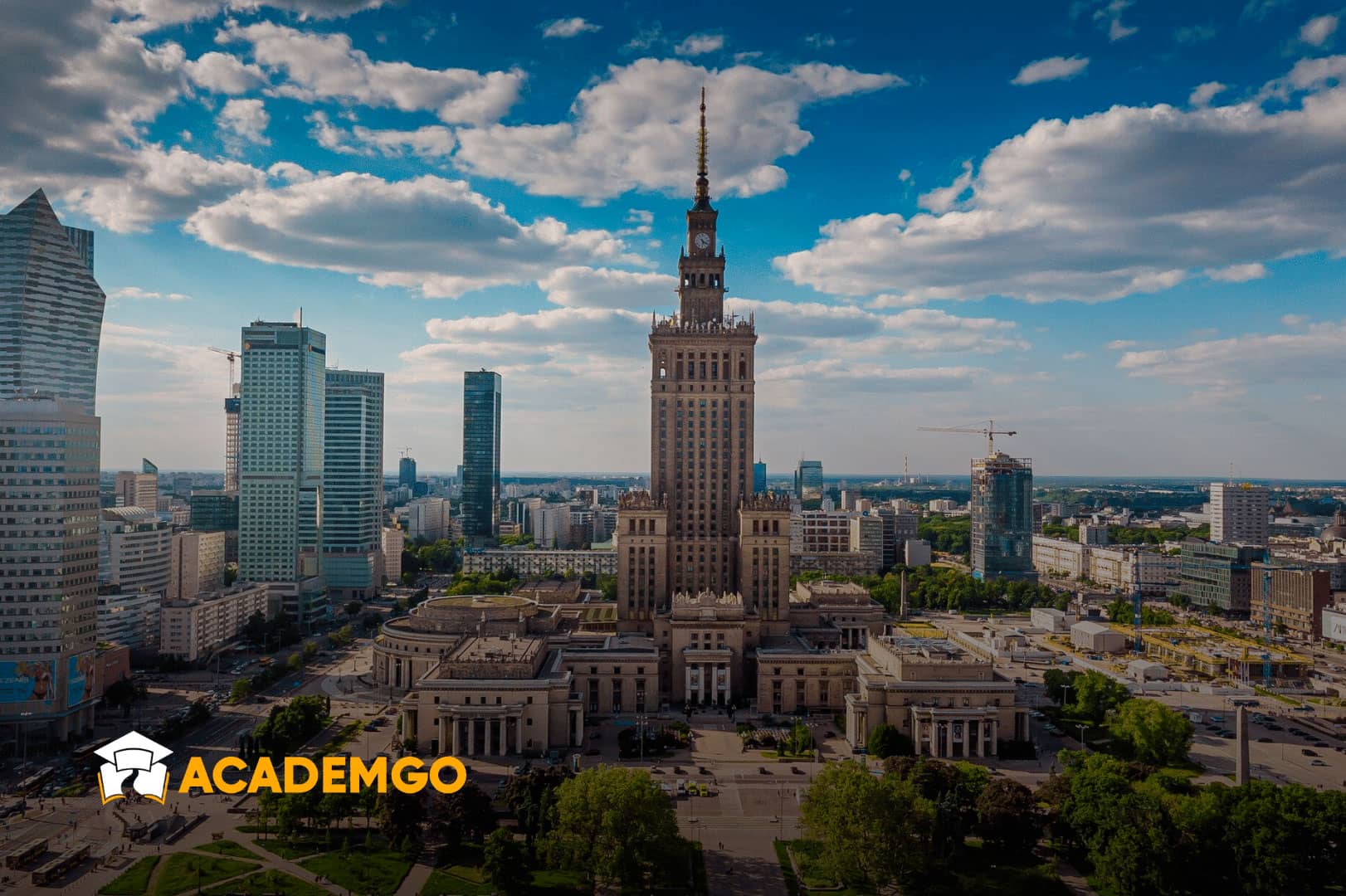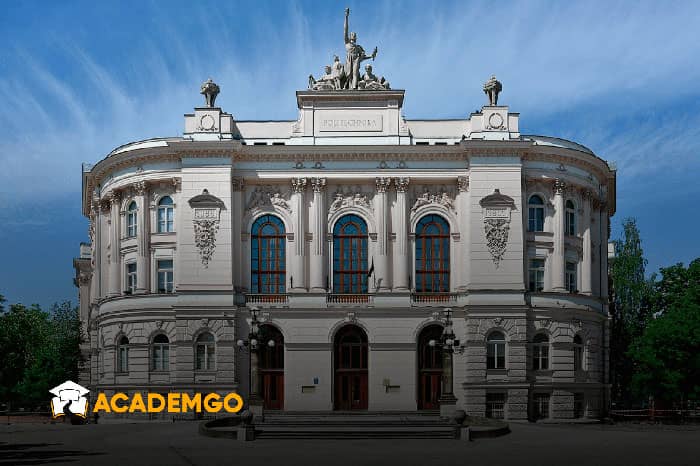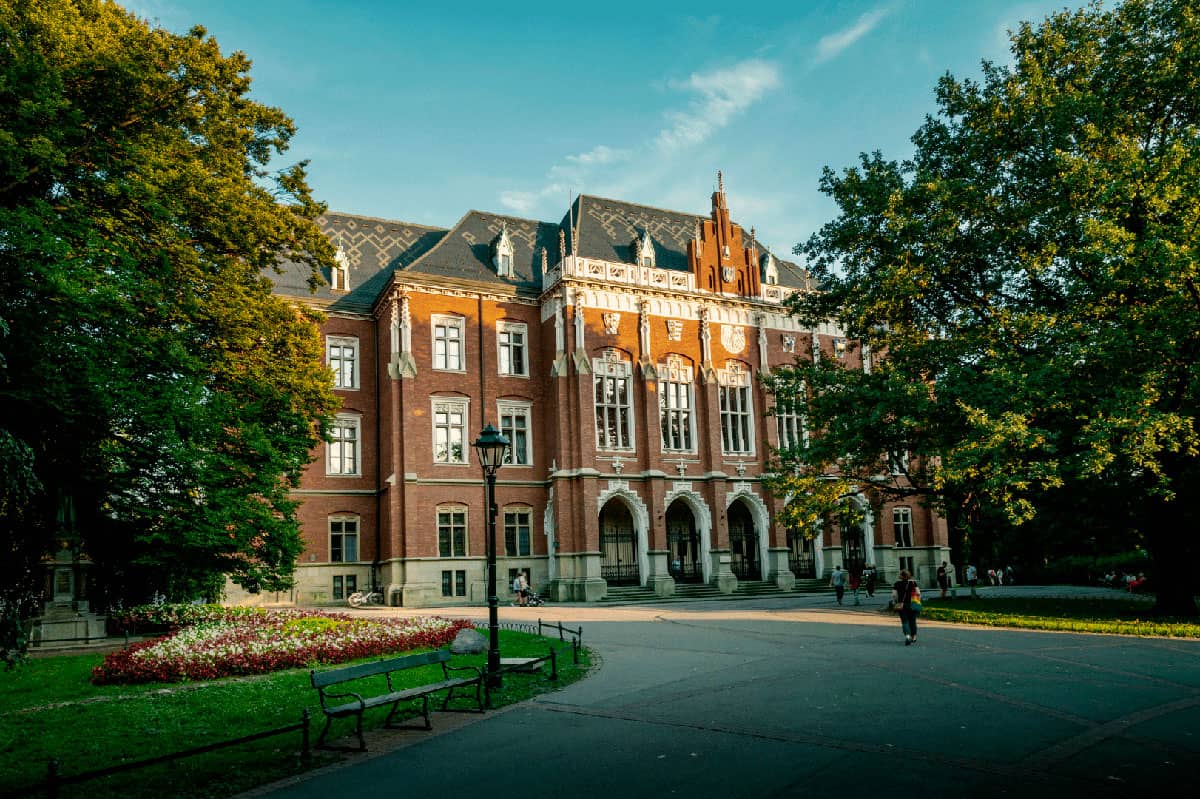
Studying in Poland After High School
AcademGo offers a full range of services for applicants seeking admission to Polish universities after completing high school. We assist with preparing all necessary documents to meet the requirements of your chosen university, including apostille, translations, nostrification, and language certificates.
We also organize the submission of applications to selected universities and maintain communication with the institutions throughout the admission process. Our experts provide guidance on all aspects of admission, visa processing, daily life in a new country, and subsequent legal matters.
With AcademGo, the process of applying to a Polish university becomes simple and straightforward. Submit your application below for a free consultation!
About Studying in Poland
Are you looking for a country to pursue education abroad?
Consider Poland!
Earning a degree abroad is not only prestigious but also opens up significant career opportunities. Poland has become a popular destination for applicants from African, Asian and other developing countries. Studying in Poland after completing high school offers unique opportunities for personal and professional growth. Polish universities provide a wide range of educational programs in both Polish and English, ensuring high teaching quality and affordable tuition fees compared to other Western European countries.
Additionally, there are numerous financial support opportunities available. Universities offer scholarships for academic excellence or financial hardships. Some programs provide significant tuition discounts (up to 100%) for exceptionally talented students.
Many universities also offer institutional scholarships to students for their academic achievements or active participation in university life. Let’s explore the opportunities Polish universities provide for prospective students.
Advantages of Studying in Poland After High School
Studying in Poland after high school comes with numerous advantages. First, diplomas from Polish universities are recognized across all European Union countries, opening doors to international career opportunities. For instance, some private universities are ranked in the Top 100 QS World University Rankings 2023, affirming their high academic standards.
Second, studying in Poland allows students to pursue their chosen fields in both Polish and English, making it easier for students unfamiliar with the local language to adapt.
The cost of living and studying in Poland is significantly lower than in other European countries, such as Germany or the United Kingdom. Moreover, Poland offers a variety of scholarships and grants for international students.
Few people know that virtually every student can receive a scholarship! The Polish government and universities provide various scholarships for international students, making education even more accessible.
For holders of the Pole’s Card (Karta Polaka) or those with Polish heritage, the government offers several benefits, including free education at public universities and simplified procedures for obtaining permanent residency and citizenship.
Bachelor’s and Master’s Programs in Poland
The higher education system in Poland aligns with the Bologna Process, adopted by most European countries. After completing high school, students can enroll in bachelor's degree programs. Studying for a bachelor's degree in Poland typically lasts 3 years for humanities programs and 3.5–4 years for engineering specialties.
After earning a bachelor's degree, students can either continue their studies in a master’s program, which takes 2–2.5 years, or enter the workforce and obtain a 3-year residence permit in Poland. Upon completing a master’s degree, graduates can either start working or pursue a PhD in postgraduate studies.
Medical specialties in Poland require 5 to 7 years of study and result in a combined bachelor’s and master’s degree in medical sciences.
Required Documents for Admission
To apply to Polish universities after high school, applicants must prepare the following documents:
- High School Diploma with an apostille and certified translation.
- State Exam Results (for admission to public universities).
- Language Proficiency Certificate at B1–B2 level in English or Polish, depending on the program.
- Application Form, submitted through the university’s online platform.
- Motivational Letter (required by some universities).
- Portfolio (for creative programs).
- Copy of Passport and Photographs.
- One-Year Insurance valid in the Schengen zone (required by some universities).
In some cases, additional documents may be required, such as parental consent for minors (under 18) or participation in an interview. These requirements depend on the specifics of the applicant's case, chosen university, and program.
Admission Process After High School
Admission to most Polish universities does not require entrance exams for the majority of programs. However, for public universities or competitive programs, applicants may need to provide results from internationally recognized qualifications, such as A-levels, the IB Diploma, or standardized tests like the SAT. Strong performance in key subjects, such as Mathematics, English, or Biology (for medical programs), along with an overall GPA of at least 60%, is essential for admission.
For English-language programs, students must provide proof of proficiency in English, such as an IELTS or TOEFL certificate with a minimum B2 level. If such certificates are unavailable, some universities may require a qualification interview to assess language skills.
Popular Courses Among International Students
Poland offers a wide range of fields for students entering after high school. Below are some of the most popular programs:
- Information Technology (IT) – One of the most in-demand fields, including programming, cybersecurity, artificial intelligence, and software development.
- Business and Management – Programs focusing on business administration, human resource management, economics, and marketing offer excellent career growth opportunities and the potential to start a business in Europe.
- Medicine – High-quality programs for training doctors, dentists, pharmacists, physiotherapists, and nursing staff, with qualifications recognized across all EU countries.
- International Relations – Students explore diplomatic relations, international organizations, global security, and sustainable development.
- Economics – This field covers macroeconomics, microeconomics, economic process management, international trade, and business development.
- Finance – Programs emphasize managing financial flows, investments, and banking. Students learn about corporate finance, financial market analysis, investment management, and risk management.
Popular Universities in Poland
Poland boasts numerous universities offering high-quality education. Here are some of the most popular among international students:
1. Academy of Economics and Humanities (AEH) – A private university specializing in economics, finance, and management.
2. Vistula University – A private institution offering diverse programs in business, IT, and international relations.
3. University of Warsaw (Uniwersytet Warszawski) – One of Poland's oldest and most prestigious universities, offering a wide range of programs in both Polish and English.
4. Łazarski University – A private university known for its programs in law, business, and economics, with extensive international partnerships.
5. Collegium Civitas – A private university specializing in humanities and social sciences, including political science and sociology.
6. Warsaw University of Technology (Politechnika Warszawska) – A leading technical university in Poland, focusing on engineering and technology-related disciplines.
Differences Between Public and Private Universities in Poland
When choosing a university in Poland, it’s important to consider the differences between public and private institutions. Public universities in Poland generally have a stronger reputation and offer a wide range of programs in Polish, which are highly recognized in the local job market. Notable public universities include the University of Warsaw, Jagiellonian University, and University of Wrocław. These institutions typically focus on preparing graduates for the local workforce, with most programs offered in Polish. Programs in English are available but less common in public universities.
Private universities, on the other hand, often do not differ significantly in tuition costs but offer several key advantages. First, private universities provide more flexible admission requirements. Entrance exams are usually not required, and applicants are evaluated based on properly prepared and timely submitted documents.
Second, private universities often adopt a more modern and individualized approach to education. Students are given more flexibility in managing their studies, allowing them to adapt to local culture and an international environment. This flexibility enables many students to balance work and study without compromising academic performance.
Private universities also tend to be more welcoming to international students, offering a broader range of programs in English. For example, institutions like Lazarski University and Collegium Civitas are known for excelling in certain specialties, often outperforming public universities in these areas. As a result, their degrees are highly regarded both locally and internationally.
Tuition Costs in Poland
Public universities in Poland offer Polish-language programs at tuition rates ranging from 1500 to 3000 euro per year. English-language programs are slightly more expensive, costing between 3000 and 5000 euro per year, depending on the field of study and degree level.
Private universities may charge higher tuition fees, starting from 2000 to 6000 euro per year. The cost depends on the program’s popularity, language of instruction, and the university’s reputation. Medical education is the most expensive due to the high demand for healthcare professionals in Europe, where salaries are among the highest.
For example, tuition for English-language medical programs at the Medical University of Warsaw ranges from 10,000 to 14,000 euro per year, while at less prestigious private universities like Vincent Pol University in Lublin, tuition for medical programs costs between 4000 and 6000 euro per year.
Living expenses, including accommodation and food, typically range from 400 to 700 euro per month, depending on the city and lifestyle. Additionally, all universities offer scholarships for students, usually awarded for outstanding academic performance or active participation in university life. Some programs even provide discounts of 80 to 100% for exceptionally talented students, making education in Poland even more accessible.
Frequently Asked Questions
